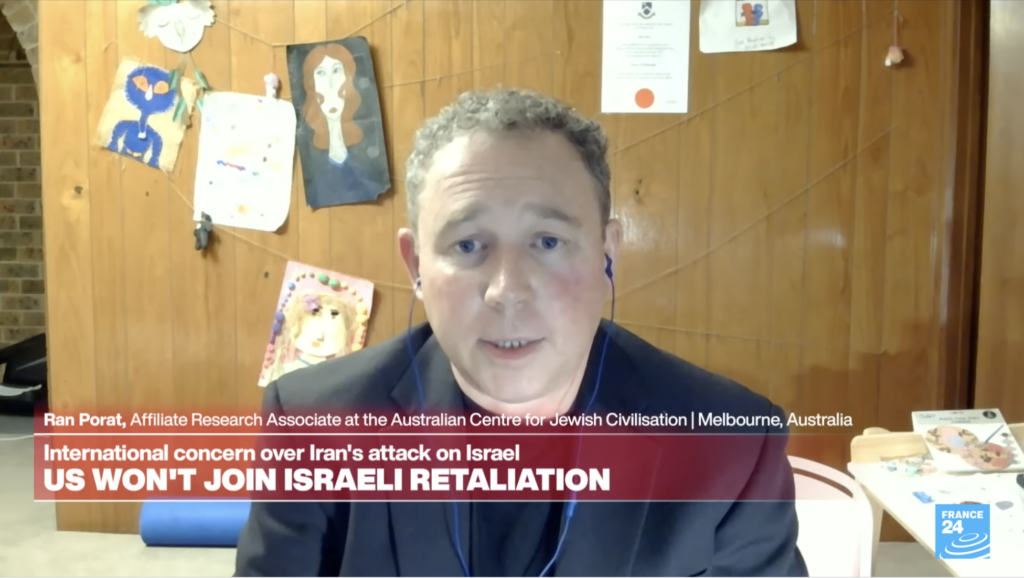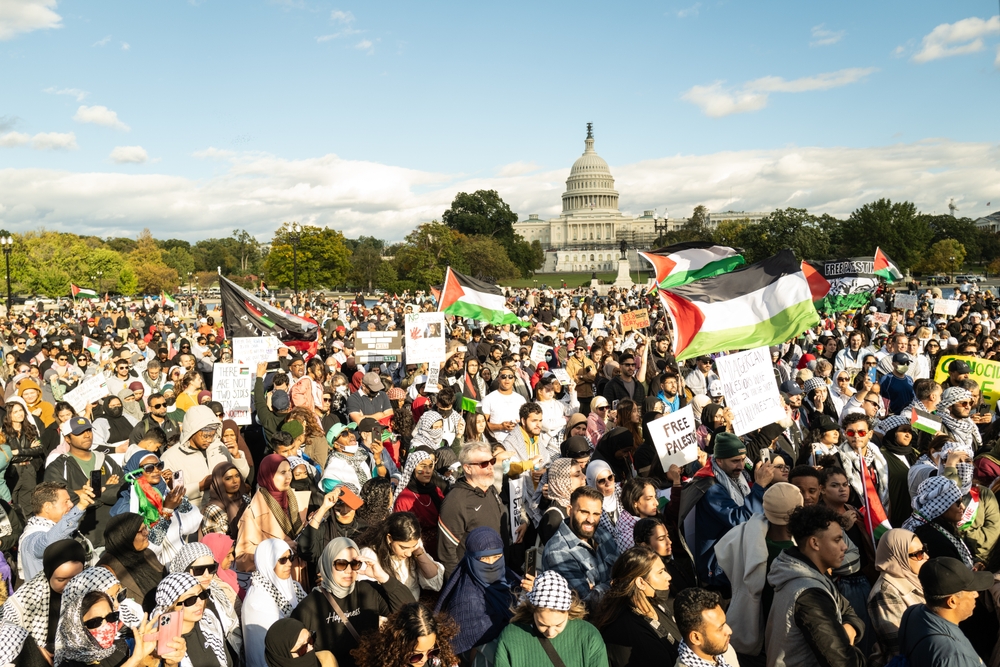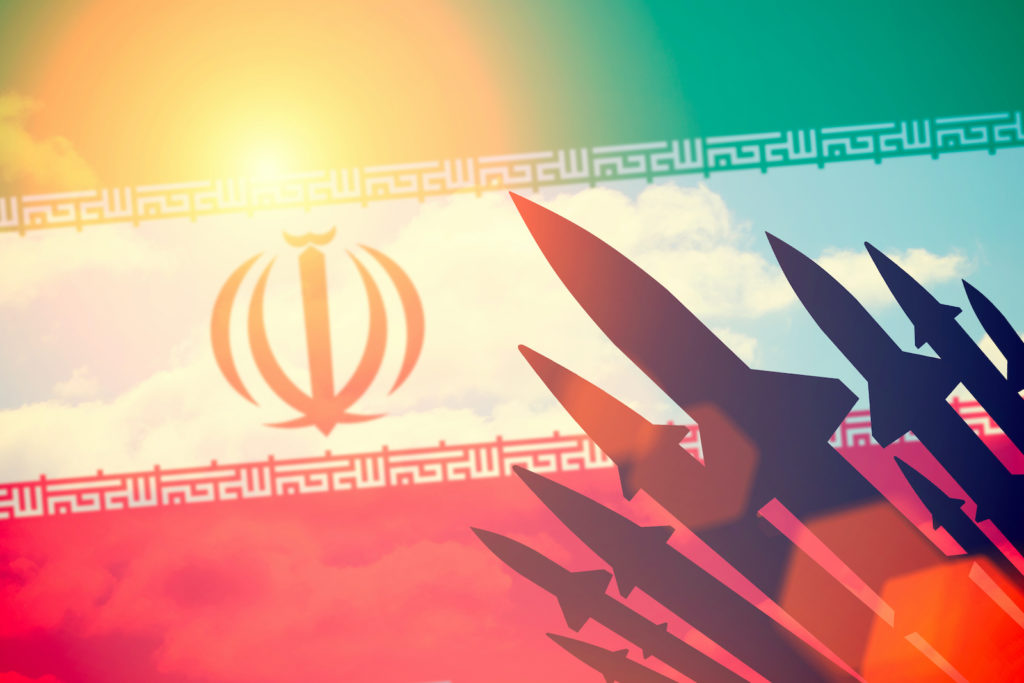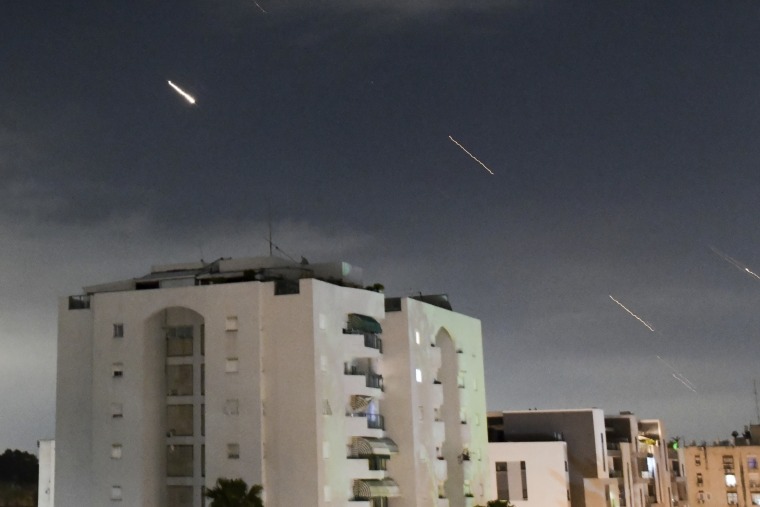UPDATES
Netanyahu and Abbas at the UN
Sep 28, 2011
Update from AIJAC
September 28, 2011
Number 09/11 #07
Today’s Update focuses on the recent events at the UN. The Palestinians submitted their formal application for full membership of the UN, and both Palestinian President Mahmoud Abbas and Israeli Binyamin Netanyahu addressed the General Assembly. The Palestinian application is here, the speech by Abbas is here and the speech by Netanyahu is here. Following the speeches, the Quartet of the UN, the European Union, Russia and the US released a proposal for the resumption of negotiations. Israel has decided to accept the proposal, but the Palestinians seem likely to reject it.
In the first piece in today’s Update, David Harris, Executive Director of the American Jewish Committee, expresses his disappointment with the Abbas speech and how it did nothing to advance the cause of peace. He points out that if Abbas was speaking as a peacemaker, he would have acknowledged the historic Jewish connection to Israel rather than pointedly ignoring it, and acknowledged Israel’s security concerns. Instead, he used incendiary language and sought to place all blame for the lack of a peaceful resolution on Israel. For Harris’ analysis of the Abbas speech, CLICK HERE.
Second, Elliot Abrams, who was the deputy national security adviser handling the Middle East in the George W. Bush administration, explains that Abbas’ speech actually hurt his own cause by annoying or offending all of those parties on whom his statehood project depends. Abrams notes that among the repercussions, the Quartet proposal to which the Palestinians objected was a direct result of the approach taken by Abbas. For Abrams’ thoughts on this Palestinian own goal, CLICK HERE.
Readers may also be interested in:
- Fiamma Nirenstein on the untruths in Abbas’ speech.
- Elliot Abrams takes Bill Clinton to task for his ill-advised criticism of Binyamin Netanyahu
- Despite Turkish Prime Minister Erdogan’s avowed and strong support for the Palestinians, and attacks on Israel, Arab leaders, including Mahmoud Abbas, were absent for Erdogan’s speech to the UN.
- The Washington Institute’s David Makovsky explains why the UN is not the place for the creation of a Palestinian state, and the differences with the UN’s creation of Israel.
- Matt Levitt of the Washington Institute reveals Hamas is extending its terror operations not only in the West Bank, but also to Iraq, Saudi Arabia, Turkey, Syria, Egypt and even China.
- Al-Qaeda slams Iranian President Ahmadinejad for his claims that the US carried out the 9/11 attacks.
- Barack Obama’s Rosh Hashana greeting.
- Some examples from the many stories and comments now appearing at AIJAC’s new daily “Fresh AIR” blog:
- What happened at the “Durban III” conference,
- The differing reactions from the Israelis and Palestinians to the Quartet proposal,
- Analysis of a media appearance by senior Palestinian official Nabil Shaath suggests he still rejects Israel’s existence.
Finally AIJAC would like to wish everyone a Shana Tova, happy Jewish New Year and a sweet, peaceful and prosperous year ahead.
Palestinian President Abbas at the UN: Another Lost Chance for Peacemaking
Huffington Post
Posted: 9/25/11 05:36 PM ET
David Harris
Executive Director, AJC, and Senior Associate, St. Antony’s College, Oxford
On Friday, Palestinian President Mahmoud Abbas addressed the UN General Assembly. He was enthusiastically received by many in the hall.
This should come as little surprise. Look at the make-up of the body: For starters, 22 Arab League members, 56 Organization of the Islamic Conference members, and approximately 120 Non-Aligned Movement members. That’s an automatic majority right there.
Abbas could say whatever he wanted and be assured of rapturous applause.
Unfortunately, what he said did not advance the cause of peace.
It actually began with the lead-up to the UN speech. The Palestinian leader declared that his land had been occupied for “63 years.” Citing 1948, the year of Israel’s establishment, as Abbas did, only reawakens the fear that this is not a conflict about the disputed land of 1967, but about Israel’s very existence.
And along the pathway to New York, Abbas’ Palestinian Authority (PA) once again paid tribute to terrorists, like Dalal Mughrabi, who murdered Israeli civilians. Not exactly the way to convince Israelis today that peaceful coexistence is around the corner.
And then there was the speech itself.
It was filled with recklessly incendiary language — “colonial military occupation,” “brutality of aggression,” “racial discrimination,” “multi-pronged policy of ethnic cleansing,” “war of aggression,” “apartheid policies,” “racist annexation Wall,” and more.
Is that the language of a peacemaker determined to narrow the space between himself and his adversary? It may play well with many in the General Assembly, but not where it really counts — in Israel, the other half of the Israeli-Palestinian equation.
Oh, and by the way, how does Abbas square that description of demonic Israeli policies with the fact that the West Bank’s Arab population and GDP are growing impressively, in what he erroneously dubbed as “the only occupation in the world”?
Or take his reference to Gaza.
He spoke of Israeli “assassinations, air strikes and artillery shelling,” “war of aggression,” and “thousands of martyrs and wounded.”
He sought to make it sound as if Israel had nothing better to do than prey on innocent Gazans.
By ignoring Israel’s total withdrawal from Gaza in 2005, the violent seizure of power by Hamas in 2007 from his PA, the genocidal Hamas Charter, the steady barrage of missiles from Gaza to Israel, and the kidnapping of Gilad Shalit, he willfully rejected Israel’s legitimate security concerns. Would it have cost Abbas to acknowledge these grim realities? Maybe in his street, yes, but isn’t that what statesmanship is supposed to be all about?
He described the Palestinians as a “defenseless people,” as if there hadn’t been decades of terrorism, thousands of dead and injured Israelis, and lethal weapons, courtesy of Iran, in the hands of self-professed killers.”
He claimed that in the 18 years since the Oslo agreement, “we persevered and dealt positively and responsibly with all efforts aimed at the achievement of a lasting peace agreement.” Really?
Here, for instance, is Bill Clinton in his autobiography My Life: “Right before I left office, Arafat, in one of our last conversations, thanked me for all my efforts and told me what a great man I was. “Mr. Chairman,” I replied, “I am not a great man. I am a failure, and you have made me one.”
A few sentences later, Clinton, an eyewitness to history at the time, wrote: “Arafat’s rejection of my [peace] proposal after [Israeli Prime Minister Ehud] Barak accepted it was an error of historic proportions.”
In 2008, Israeli Prime Minister Ehud Olmert went even further in the deal he put on the table. The next year, Abbas confirmed that the proposed swap would have given the Palestinians land that would equal 100 percent of the West Bank. But, as Prime Minister Netanyahu noted in his own remarks on Friday: “President Abbas didn’t even respond to it.”
And, of course, with the exception of a few days in September 2010 when he showed up in Washington, Abbas has been MIA — missing in action — from peace talks with Israel for 30 months, while the U.S. and Israel have scampered after him. [He was also nowhere to be found in 2005, when Israeli Prime Minister Ariel Sharon sought a negotiated withdrawal from Gaza, instead having to act unilaterally.]
Had Abbas wanted to move the needle of mutual understanding, he might have rethought his formulation on the “Holy Land” — in his words, the site of the “ascension of the Prophet Muhammad and the birthplace of Jesus Christ ” — to include even a passing reference to the biblical Jewish connection as well. But alas, he didn’t, consistent with the Palestinian narrative, voiced most dramatically by Arafat to Clinton, that there is no evidence of a Jewish link to the land or tie to Jerusalem.
In all, Abbas chose the familiar path: Go to the General Assembly, where today he’s assured of an automatic majority that will cheer his every word, vote for whatever he seeks, and damn Israel for any alleged misdeed.
By stark contrast, the Israel prime minister used the same podium shortly afterward to call for the immediate resumption of direct talks, with the goal of a two-state accord. He declared: “After such a peace agreement is signed, Israel will not be the last country to welcome a Palestinian state as a new member of the United Nations. We will be the first.”
Ah, if only the Palestinian leader had borne in mind those poignant words of King Hussein, expressed in 1997 after a lone Jordanian gunman murdered seven Israeli schoolgirls: “If there is any purpose in life, it will be to make sure that all the children no longer suffer the way our generation did.” Had he, Abbas would have sat down with a willing Netanyahu in New York, so together, despite all the obstacles and competing narratives, they could consider how to fulfill that noble vision.
But Abbas chose not to. Instead, he opted to grandstand for the UN crowd and the folks back home. The result, alas, was another lost chance for peacemaking.
Back to Top
————————————————————————
Abbas Strikes Out
ELLIOTT ABRAMS
National Review Online
SEPTEMBER 26, 2011 4:00 A.M.
His U.N. speech made waves and drew cheers but will ultimately hurt his cause.
The rapturous applause that greeted Mahmoud Abbas, appearing before the U.N. General Assembly in his role as chairman of the PLO, was deceiving. The collection of states that swooned when he mentioned Yasser Arafat’s 1974 appearance in the same hall will never give him a state — nor even the foreign-aid money to pay his delegation’s hotel bills.
His statehood project depends on Israel and the United States, and to a lesser extent on the Europeans (and a bit of Gulf Arab financing). His U.N. gambit has annoyed or offended all of those parties. The Saudi gift of $200 million last week to support the Palestinian Authority was handed, precisely, to the PA and to its prime minister, Salam Fayyad, as a show of confidence in him and his institution-building work, bypassing Abbas and his PLO cronies.
The Israeli reaction to the Abbas speech is predictably negative, for it was a nasty piece of work filled with harshly worded denunciations — and from which any real commitment to telling truths to the Palestinian people was absent. Instead, Abbas repeatedly referred to the nakba or “catastrophe” of 1948 as the source of the Palestinians’ plight, thereby telegraphing to Israelis that his main complaint was the existence of the State of Israel rather than its “1967 borders.” His reference to the “Holy Land” as the home of Jesus Christ and the place from which Mohammed ascended to heaven excluded all references to Jews and Jewish history, and delivered the same awful message. The Abbas speech will end up strengthening Netanyahu’s tough approach to Israeli security.
But the most striking evidence of Abbas’s error came in the Quartet statement (from the U.S., the U.N., the EU, and Russia) released Friday night, after Abbas and Netanyahu had spoken. In the past two and half years, every Quartet statement has reflected Obama’s obsession with construction in the settlements and has demanded a freeze. The statements have also often reflected the Obama administration’s tilt toward the Palestinians and against Israel.
But not this one. Instead it reflected both Obama’s own U.N. speech, tilting the other way as the American elections appeared over the horizon, and EU annoyance with Abbas. This Quartet statement did not even mention settlements, not once, and instead simply laid out a long timetable for negotiations. The Quartet statement “reiterated its urgent appeal to the parties to overcome the current obstacles and resume direct bilateral Israeli-Palestinian negotiations without delay or preconditions,” thereby rejecting the Palestinian demand that a construction freeze come first.
The operational paragraphs were these:
1. Within a month there will be a preparatory meeting between the parties to agree an agenda and method of proceeding in the negotiation.
2. At that meeting there will be a commitment by both sides that the objective of any negotiation is to reach an agreement within a timeframe agreed to by the parties but not longer than the end of 2012. The Quartet expects the parties to come forward with comprehensive proposals within three months on territory and security, and to have made substantial progress within six months.
“The end of 2012” takes them, of course, beyond the U.S. elections. And lest the election-year tilt to Israel was still unclear, the State Department briefer who explained all this to the press late on Friday referred twice to Israeli “flexibility.” Gone are the days when the Obama administration pugnaciously sought confrontations with Jerusalem — at least until the reelection campaign is over.
But Palestinians would be mistaken to attribute the entirety of their defeat to American politics; they should note that Abbas did not get the Security Council vote he wanted. For the moment, at least, the Palestinians could not attain the nine votes they needed to win and thus force an American veto. This is another measure of their failure in New York.
It is true that Abbas’s U.N. ploy may work for him in terms of his own domestic politics — for a while, anyway. Instead of being the man who lost Gaza, he may briefly be the man who “bravely” took the statehood issue to the U.N. But he did not take the Palestinians one step closer to peace, nor did he speak to them seriously about what peace will require from them. In this he is a faithful follower of his mentor Yasser Arafat. If there is ever to be peace, the Palestinians will someday need a leadership that tells them the truth: Hard work and difficult compromises will be needed, not applause in the General Assembly.
Elliott Abrams, a senior fellow at the Council on Foreign Relations, was the deputy national security adviser handling the Middle East in the George W. Bush administration.
Back to Top
————————————————————————
BICOM ANALYSIS: Assessing the Outcome of UN Diplomacy
27/09/2011
Key points
- After a week of intense diplomacy in New York, the Palestinians remain committed to their unilateral attempt to be recognised as a state at the UN.
- Despite Israeli Prime Minister Benjamin Netanyahu showing some flexibility, the Quartet was unable to secure agreed terms of reference for a return to talks. It proposed only a timetable for reaching an agreement, calling for a ‘preparatory meeting’ in one month.
- Netanyahu is likely to formally accept the proposal, which accords with his preference for talks without preconditions. However, the Palestinians do not want to enter negotiations with Netanyahu, and seem unlikely to drop their demand for a full settlement freeze and acceptance of 1967 lines as the basis for talks.
- Though the Palestinian application to the UN Security Council looks set to either stall or meet with a US veto, the Palestinians retain the option of becoming a non-member state at the UN General Assembly, a move that could undermine a future negotiated agreement.
What is the outcome of the diplomacy in New York?
A week of intense diplomacy failed to prevent Palestinian President Mahmoud Abbas from submitting his application for Palestinian membership of the UN to UN Secretary-General Ban Ki-moon on Friday, 23 September, 2011.
After tough speeches by both Abbas and Netanyahu to the General Assembly on Friday, the Quartet issued a statement proposing a timetable for a return to talks. It called for a ‘preparatory meeting’ within a month, followed by comprehensive proposals on borders and security within three months and an agreement by the end of 2012.
This proposal follows the Quartet’s failure to broker agreed terms of reference for renewed negotiations. The statement is conspicuous by its lack of any attempt to define the parameters of an Israeli-Palestinian agreement, despite considerable diplomatic work to find a form of words acceptable to both sides. The Palestinians remain opposed to re-entering talks with Netanyahu without a full settlement freeze and Israeli acceptance of 1967 borders as the basis for talks. Netanyahu’s preference is for talks without preconditions.
Senior US diplomats informed reporters that Netanyahu had ‘responded quite flexibly and responsibly’ to US compromise proposals on returning to talks. Netanyahu himself told the General Assembly that he was willing to negotiate on the basis of US ‘ideas’ with regard to borders. Israeli sources have indicated that he would have accepted reference in some form to the 1967 borders as a basis for talks, if it came with clear conditions about the need to recognise demographic changes on the grounds. Yet whatever concessions Netanyahu offered were clearly not enough to overcome Palestinian reluctance to enter talks.
Since the Quartet timetable has no preconditions attached to it, Israel has responded positively. However, it is not clear how the Quartet believes it can compel the Palestinians to agree to engage in the process. The diplomatic pressure put on Abbas by the US and EU so far has not succeeded in convincing him to drop his preconditions.
Where do the Palestinians stand now?
There was no hint in Abbas’s speech to the UN of a leader looking for a way back to the negotiating table. Abbas gave an incendiary speech, filled with anti-Israel propaganda, which was designed to appeal to the Palestinian and wider Arab public. He accused Israel of ethnic cleansing, apartheid and the murder of civilians. Equally provocative to Israelis was his reference to Palestine as ‘the land of divine messages, ascension of the Prophet Muhammad (peace be upon him) and the birthplace of Jesus Christ’, with no mention of the Jewish connection to Israel.
The cool Palestinian response to the Quartet statement indicates that despite considerable international pressure, they are unmoved by this latest attempt to bring them to the negotiating table. The Palestinians will try to avoid saying a direct ‘no’ to the Quartet, but it is hard to see them dropping their preconditions and actually coming to the table.
There is a limit to how much pressure the EU and US can put on the PA. The US Congress is threatening to cut off American funding to the Palestinians if the US is forced to veto a Palestinian UN membership bid in the Security Council, but the administration will be reluctant to see this happen. The EU, the US and Israel fear the collapse of the PA, which could open the door to Hamas. When Abbas himself talked in his UN speech of the PA’s possible collapse, it was a thinly veiled threat to the international community. The Palestinians are also aware that there is a lack of confidence among European officials about Netanyahu’s ability to reach a deal.
Meanwhile, Abbas is still under domestic political pressure to deliver a concrete result at the UN. The Palestinian membership bid looks set to stall or be voted down in the Security Council. Therefore, the Palestinians are unlikely to wait long before turning to the option of upgrading to the status of ‘non-member state’ via a General Assembly resolution.
Abbas’s stance against Israel and the US is bolstering his standing in Palestinian public opinion. This could be seen as a positive development, given the threat of Hamas. But it risks playing into the hands of those on the Israeli right who argue that there is no Palestinian partner for peace.
Where does Israel stand now?
Netanyahu also addressed the UN with an eye on his domestic audience. He spoke more fulsomely than Abbas of the need for peace, but at the same time he was forthright in his defence of Israel’s position. He accused the Palestinians of wanting a ‘state without peace’, and reasserted his insistence that peace would be based on security arrangements that meet Israel’s needs, including an Israeli military presence in the Jordan Valley, and Palestinian acceptance of Israel as a Jewish state. He also attacked the UN itself for its anti-Israel bias.
In the coming days, Israel may enjoy a moment of diplomatic respite, whilst the Security Council considers the UN membership bid and pressure builds on the Palestinians to accept the return to direct talks. However, Israel is still concerned that the General Assembly will recognise Palestine as a non-member state, with all the associated worries about that opening the door to legal steps against Israelis in the International Criminal Court (ICC) and other international forums. Israeli opposition leader Tzipi Livni continues to accuse Netanyahu of failing to stem the tide of Israel’s diplomatic isolation by launching a diplomatic initiative.
Right-wing members of Netanyahu’s coalition, including Foreign Minister Avigdor Lieberman, are calling for punitive measures against the PA, should a resolution pass at the UN. Lieberman could pull his Yisrael Beiteinu party out of the coalition at any time, leading to the collapse of the government, and Netanyahu will be concerned about being outflanked on the right in a future election.
What happens next?
The Quartet will now attempt to organise the ‘preparatory meeting’ between the parties within a month, as described in their statement. However, it is hard to see Abbas backing down on his preconditions, making the chances of holding the meeting look slim.
Meanwhile, the Palestinian UN membership application will be put before the Security Council by its rotating president, Lebanon, on Wednesday, 28 September. The Security Council will then form a committee, consisting of representatives of all 15 members, to review the membership request. From this point on, the request is in the hands of the Security Council members. If the US thinks it has the seven votes necessary to dismiss the motion at this point, without it needing to use its veto, the Americans could try to move swiftly to a vote. Alternatively, the parties could take their time considering the application. They could, for example, request more information from the Palestinians, and drag the process out by weeks or months.
If the Palestinians seek a resolution at the General Assembly before the Security Council process has run its course, they may sacrifice the support of the EU Security Council members. However, even without united European support, chances of achieving a substantial majority at the General Assembly remain sound.
A General Assembly resolution threatens to undermine the basis for any future negotiated solution, by imposing one-sided terms of reference and opening the door to prosecutions being brought against Israelis in the ICC. EU states may yet try to negotiate with the Palestinians to moderate the text of a General Assembly resolution to limit its damage to the peace process. This would mean ensuring balanced terms of reference, including in the text the need to return to negotiations, and finding a mechanism to prevent ICC prosecutions.
Meanwhile the situation on the ground will remain tense. There were two fatal incidents of violence on Friday. A young Israeli father and his one-year-old son, residents of the Kiryat Arba settlement near Hebron, were killed when a rock was thrown at their car. In a separate incident, a Palestinian man was killed in a clash with Israeli security forces near Nablus. Despite these incidents, impressive security coordination between Israeli and Palestinian security forces prevented widespread outbreaks of violence. Nonetheless, the threat of uncontrolled escalation remains heightened, given the political climate.
Tags: Israel











